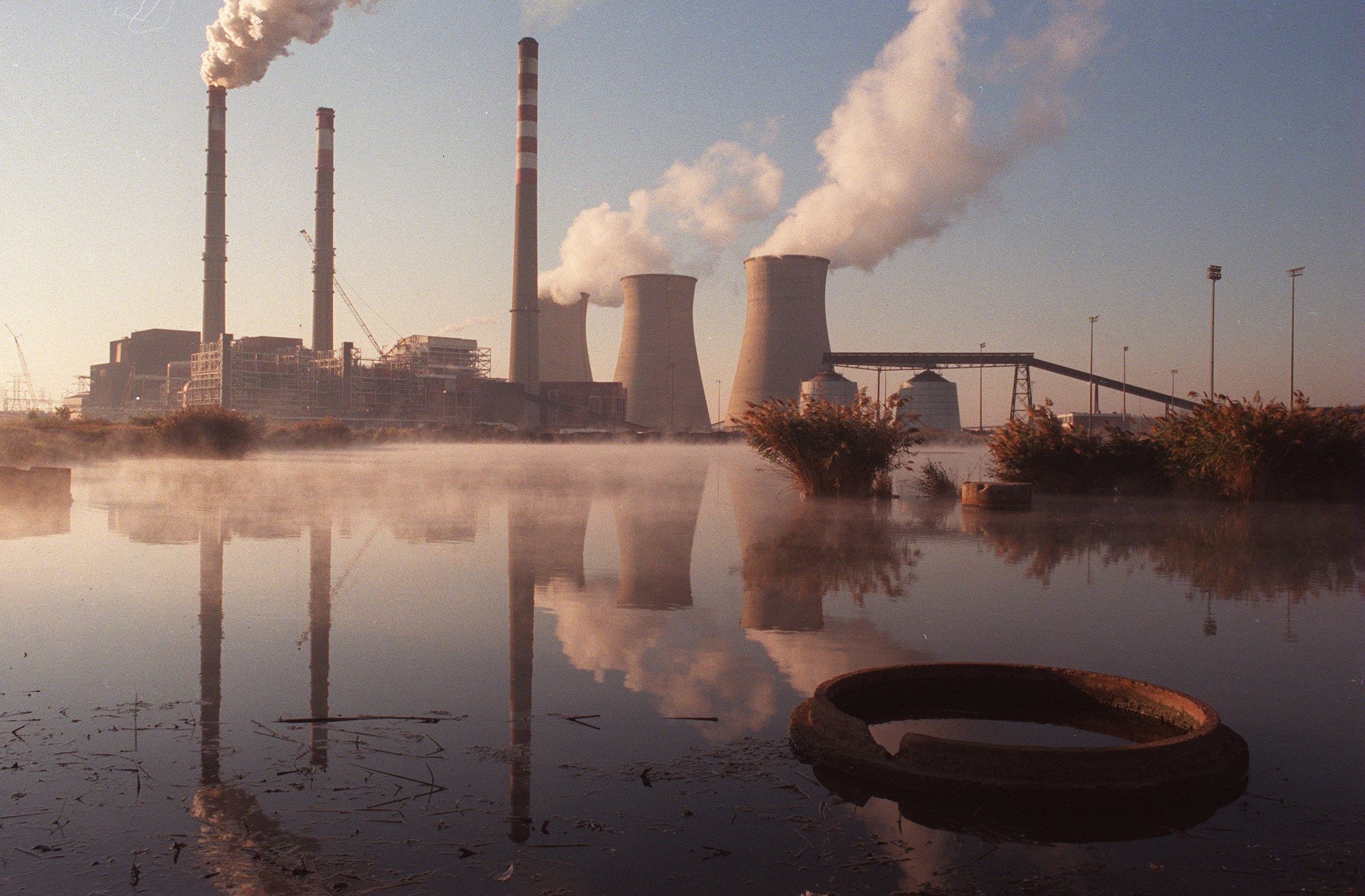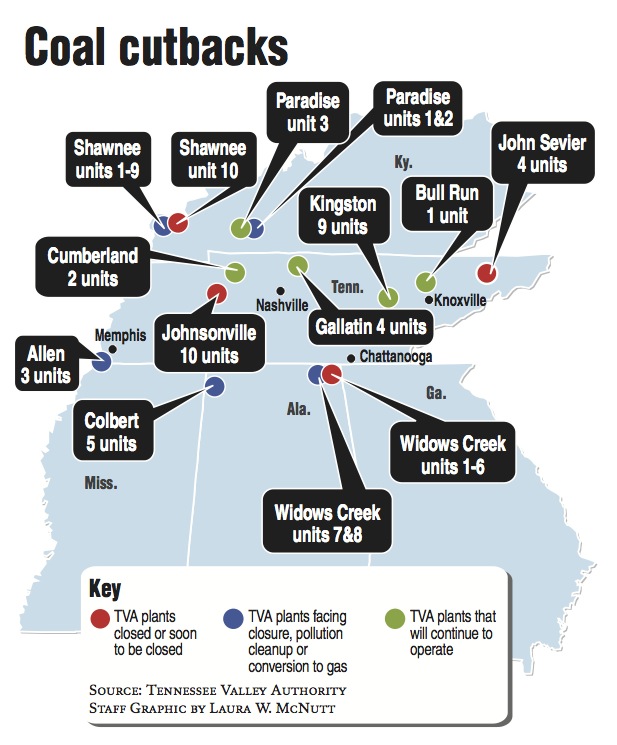King Coal may soon be dethroned as the Tennessee Valley Authority's primary source of power.
After stoking most of its power plants with coal for more than a half-century, TVA appears ready to shut down many of its oldest and least-efficient coal plants in the face of stricter environmental rules and less demand for energy. The federal utility has shut down a half-dozen units in the past two years and is studying options to shutter at least a dozen more.
TVA expects to generate more power from nuclear plants than coal within the next three years.
"The average age of our coal fleet is over 51 years, so I like to joke that I would like to close the ones that are older than me," said Bill Johnson, TVA's 59-year-old CEO, who touts a vision of making TVA a national leader in low-cost, cleaner energy by 2020.
But the shift is drawing some criticism, especially from coal-rich Kentucky. The state has lost more than 6,000 coal-mining jobs over the past five years as utilities have announced plans to shutter more than one-fourth of America's coal-generating capacity.
TVA directors today will hear from supporters of the Paradise coal plant in western Kentucky, where the utility may replace the two oldest coal units with a natural gas plant. The move would help meet new environmental standards but also could cost up to 200 jobs at the plant and many others in the coal mines that provide its fuel.
"These are jobs that average $74,000 a year and have helped build our local economy," said Kentucky state Rep. Brent Yonts, a Democrat from Greenville, Ky. "TVA has a mission to help the economy of the valley and there are hundreds of jobs at the plant and in the coal mines in Kentucky that depend upon Paradise."
Yonts will address the TVA board today in Oxford, Miss., where directors will discuss the challenges of Paradise and other coal plants facing new and proposed rules to limit smog, mercury and carbon dioxide pollutants linked with air pollution and climate change.
Under a 2011 agreement with environmental groups and the U.S. Environmental Protection Agency, TVA agreed to either clean up or replace 18 of its 59 coal-fired units by 2018.
After four years of unprecedented declines in power sales, the utility is considering plans to close even more coal units.
"As the nation's largest and most important power company, TVA is in a position to be a real leader in controlling air pollution and climate change and we hope that TVA does pivot with respect to coal and look for cleaner sources of generation," said Jonathan Levenshus, the head of the Beyond Coal Campaign for the Sierra Club.
Falling natural gas prices over the past four years helped make gas-fired generation cheaper than installing costly scrubbers, selective catalytic reduction devices and other controls on coal plants to meet EPA air quality standards.
But coal backers say natural gas is likely to become more expensive over time and won't be as cheap as coal in the long run, even including more pollution controls.
"Natural gas has nowhere to go but up in price," said Luke Popovich, a communications director for the National Mining Association, the primary trade group for America's 805,000-employee coal industry. "If you continue to take away coal generation from the mix of electricity generation, you have a very worrisome situation in which you have a growing economy with a declining base of affordable energy."
Popovich said utilities have said they'll cut more than 20 percent of the nation's coal-generating capacity to meet EPA limits on mercury and carbon emissions. But coal still fuels more than 40 percent of U.S electricity generation and last year accounted for 38 percent of TVA's power, down from 80 percent in the 1970s.
TVA, which already agreed to shut down most of its Widows Creek, John Sevier and Johnsonville coal plants, is considering whether to idle or upgrade more units at its Colbert and Widows Creek plants in Alabama, the Allen plant in Memphis and the Paradise and Shawnee plants in Kentucky.
"We believe that TVA should and will ultimately close many more of its coal units," said Stephen Smith, director of the Southern Alliance for Clean Energy and a member of the TVA Regional Energy Resource Council.
"There are huge environmental and health benefits that come from shutting down these units, but there are also economic benefits of letting those units go rather than spending so much on pollution controls and staffing to keep these old and inefficient plants going," Smith said.
Contact Dave Flessner at dflessner@timesfreepress.com or at 757-6340



